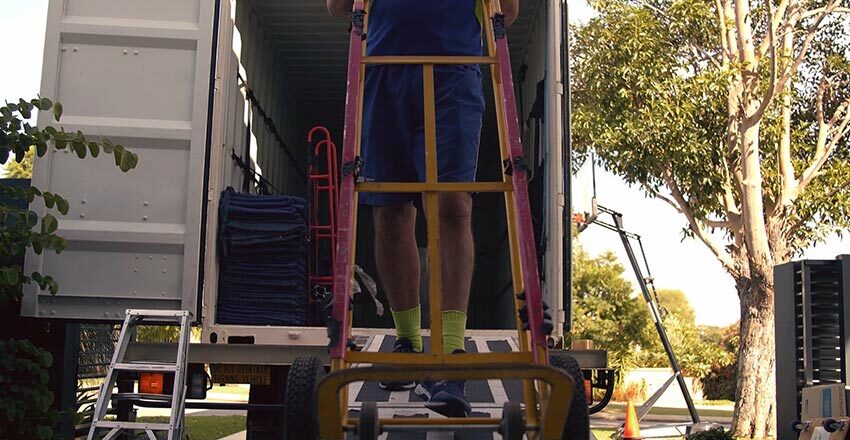Contents [hide]
- Tip #1 - Consider Carefully What Size Storage Unit You Require
- Tip #2 - Create A Plan For The Layout Of Your Storage Unit
- Tip #3 - Invest In Decent Shelving And Storage Boxes/Bins
- Tip #4 - Create A Detailed Inventory List
- Tip #5 - Choose A Climate-Controlled Storage Unit If Required
- Tip #6 - Ensure That You Have Access Control In Place
- Tip #7 - Ensure That The Storage Facility Has Adequate Security
Depending on the type of business you own or run, it may require inventory, and that means there is a chance that at some point you may have to consider using a commercial storage facility. The reasons for this can include your business premises not being large enough to store your inventory, the cost of moving to and renting larger premises being beyond your budget, or your stock levels growing much faster than you can sell them.
Whatever the reason is, if you do require commercial storage units to store your inventory then there is a right way and wrong way to go about it. What we are going to do is focus on the right way to use a commercial storage facility, and outline 7 excellent tips for using a storage unit effectively to store inventory.
Tip #1 - Consider Carefully What Size Storage Unit You Require
Before selecting what storage unit(s) you are going to rent, you must evaluate the capacity you require based on the inventory you have, and importantly, are likely to add to it. Our advice is to err on the side of renting a larger unit than you need rather than a smaller one for the simple reason that the upheaval and effort to move all your inventory to a larger unit later is something you want to avoid.
Tip #2 - Create A Plan For The Layout Of Your Storage Unit
Once you have chosen the right size unit, it is important to create a layout plan to make the most of the available space. Consider grouping similar items together and leaving enough room for access to your inventory. Label all boxes and containers clearly to make it easy to find what you need when you need it.
Tip #3 - Invest In Decent Shelving And Storage Boxes/Bins
Invest in quality shelving and storage bins if none are provided by your storage facility. This can help you maximise your storage space and keep your inventory organised. Shelving allows you to take advantage of vertical space, while storage bins and boxes can be used to store similar items together and keep them safe from harm. Ensure you also use a logical labelling system for both the shelves and the storage containers/bins.
Tip #4 - Create A Detailed Inventory List
Keeping an inventory list is essential to ensure that you know what is in your storage unit and where specific inventory is located within it. By keeping an inventory list, you can easily find what you need, and it quickens the process of stocktaking when that is required. Ensure you update your inventory list regularly and keep a copy accessible for those who might need to refer to it.
Tip #5 - Choose A Climate-Controlled Storage Unit If Required
You may not require this depending on the type of inventory you are storing, however, if you have delicate items such as electronics, artwork, or documents, you must opt for a climate-controlled storage unit. Climate-controlled units maintain a consistent temperature and humidity level, which can help prevent damage to your stored items.
Tip #6 - Ensure That You Have Access Control In Place
If your inventory is especially valuable, or you have documents stored with confidential or sensitive information, then it will serve you well if you have adequate access control in place. This means limiting the number of employees who can enter the storage unit to either add or remove inventory. Most storage facilities can provide individual security keys so that you know which person has accessed the inventory at any given time.
Tip #7 - Ensure That The Storage Facility Has Adequate Security
Robust security is essential when storing inventory which is why we advise choosing a storage facility with excellent security features such as surveillance cameras, gated access, and individual unit alarms. Consider investing in your own security measures too, such as locks for each container or box.




























